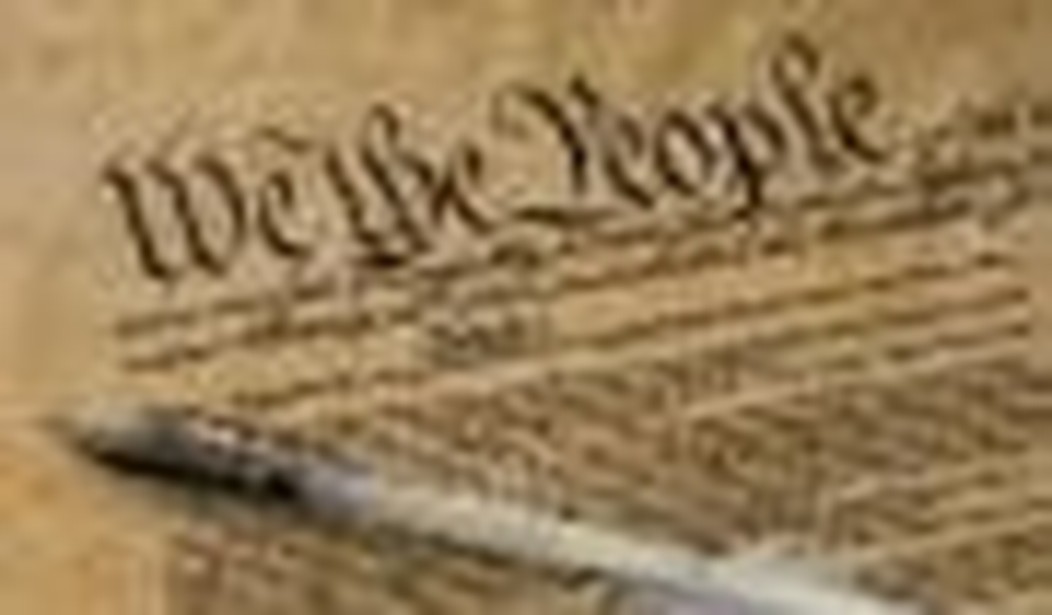If nothing else, the 2010 elections were about a renaissance of the United States Constitution. The constitutional restraints on the power of government are en vogue. A resurgent GOP has claimed the document as a unifying rallying cry. This is why it is so curious that one of the leading candidates for Republican National Committee chair has fought for one of the most anti-constitutional ideas of the last half-century.
Saul Anuzis, former chair of the Michigan Republican Party, has aggressively championed the National Popular Vote movement. If you don’t know what that is, count your blessings. The National Popular Vote movement is a frontal assault on one of the most important parts of the Constitution — the method we use to elect the president.
The National Popular Vote movement would have states allocate their Electoral College votes to whichever candidate wins the nationwide popular vote. For example, South Carolina would have thrown their electoral votes in 2008 to Barack Obama even though McCain handily won the state.
It is a peculiar idea for a candidate for RNC chair to champion.
The plan relies on statutory changes in the states, not a constitutional amendment to abolish the Electoral College. Naturally, there would never be sufficient support to amend the Constitution this way. States would never sign that suicide pact. Americans may be disturbed, however, to learn that 31 state legislative chambers have passed this purely partisan initiative. Notice the blue hue of the states which have done so.
The Electoral College is not some ancient relic whose time has passed. Instead, it is a way to preserve nationhood, to make elections matter in every corner of the union. Successful presidential candidates must appeal to a cross section of voters to obtain a majority of electoral votes. Obama appealed to more than New York, California, Massachusetts, and Vermont. He had to capture the formerly industrial Midwest and a southern state or two to win. The pattern repeats in other elections.
The National Popular Vote plan promoted by Saul Anuzis would trigger a massive power shift to urban areas. Why do a time consuming crisscross of the upper Midwest when you can buy the New York City and Philadelphia media markets and open the spigots with urban voters? Under Anuzis’ plan, there is no reason for a candidate to visit Alabama, Tennessee, Kentucky, or West Virginia. Just set up camp in Los Angeles or Chicago instead and wring out as many votes as possible in densely populated urban areas.
Urban voters also have the least political diversity of any voters. Contrary to what some believe, voters in places like Boston, San Francisco, and Seattle are actually the least tolerant of competition ideologically. They vote as a cohesive bloc, more so than suburbia or even rural areas.
In contrast, states like Kentucky, the Dakotas, West Virginia, and Nebraska have voters who vote for the person, not the party. Both Democrats and Republicans win there. But city voters pull straight Democrat tickets more often. Obama secured 75% of the New York City vote.
The cohesive voting pattern of urban voters of course explains why academia is so excited by the National Popular Vote movement. The small cabal of election law professors distinguish themselves primarily by conjuring new ways to federalize elections.
State control of elections helps preserve liberty by decentralizing control over elections. No single federal entity has the power to write rules, regulations and procedures for electing members of Congress and the president. Academia finds it inconvenient that the Constitution vests the power to run elections with the states. Like so many other bad ideas, this anti-constitutional popular vote scheme originated in academia.
The Founders feared national mob rule more than anything else, certainly more than poorly run state elections. They studied how earlier democracies such as Greece devolved into bankrupt majoritarian collapse. They viewed the federal government as deriving power from grants by the individual states, not majoritarian whim. The Electoral College ensures that our president represents many parts of America, not just an urban core.
If that isn’t enough to question Anuzis’ support for the National Popular Vote scheme, two words might convince you: George Soros. Soros and his son Johnny are bankrolling the national popular vote attack on the Constitution.
Did Anuzis accept Soros money when he lobbied for the plan across the country? Or does he just personally believe in it?
These are questions RNC members and Republicans should ask Anuzis this week. Why does he support this latest attack on the Electoral College and the core of our Constitution? Was he paid by Soros, directly or indirectly, or does he really believe in this bad idea? The GOP may lose its newfound brand as defenders of the Constitution if the answers come after Anuzis is elected RNC chair.










Join the conversation as a VIP Member